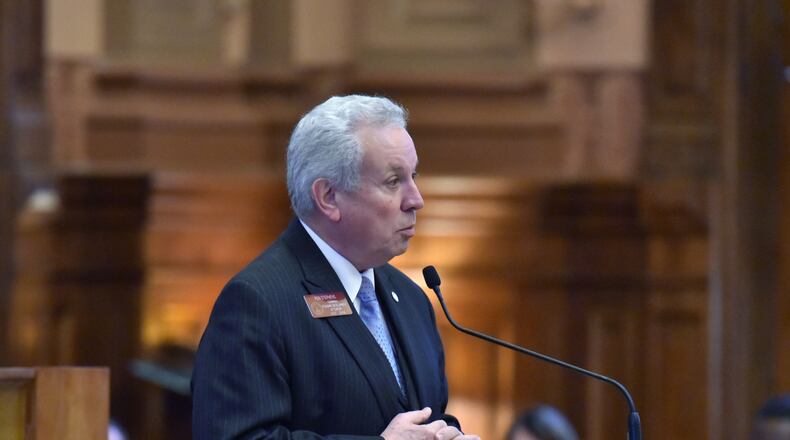A Republican state lawmaker filed legislation this week to legalize online sports betting in Georgia, aiming to expand gambling without the constitutional amendment that’s usually required.
House Tourism and Economic Development Chairman Ron Stephens of Savannah filed a bill Thursday that would authorize the Georgia Lottery to manage an online sports wagering system, with some proceeds going to fund HOPE scholarships.
Supporters of sports betting have said the illegal sports betting market in Georgia is $1.5 billion, so it only makes sense for the state to regulate the system.
“It’s anticipated to bring upward of $100 million in tax revenue,” Stephens said. “In the big scheme of things, it’s not a lot, but its an additional game that the lottery would offer.”
Critics have said the possible state earnings from sports betting are exaggerated by supporters.
The lottery contributed $1.2 billion to education programs such as the HOPE scholarship in fiscal 2020.
According to the legislation, House Bill 86, sports betting companies would pay a 16% tax on their income, with all the revenue going to the HOPE scholarship.
Players would have to be over 21 to bet and be in Georgia to place a wager.
The legislation is backed by the Georgia Professional Sports Integrity Alliance, a coalition of four professional Atlanta sports franchises — the Atlanta Braves, Atlanta Falcons, Atlanta Hawks and Atlanta United.
Atlanta Braves President and CEO Derek Schiller said this was the first policy issue that brought all four franchises together when the alliance was formed in 2019.
“We don’t receive direct revenue from this,” Schiller said. “This is good for our fans, we think, from a fan engagement perspective. But it’s also good for the state because it drives new tax revenue to the state, especially in this unique time that we’re in and going to be recovering from.”
For years, gambling supporters have pushed the Legislature to expand the industry to allow casinos or horse racing. But a 2019 U.S. Supreme Court ruling opened an opportunity for states to legalize sports betting. So far, more than a dozen states have.
Virginia Galloway, a lobbyist with the Georgia Faith and Freedom Coalition, said it was poor public policy to expand gambling by making the argument that it would bolster the HOPE scholarship program.
“Gambling always costs more than it brings in,” she said.
After years of failed attempts to expand legal gambling through a constitutional amendment, which would require two-thirds support in each chamber of the Legislature and a majority of Georgia voters, Stephens said betting could be legalized through legislation that needs a lower threshold of support.
Stephens, who has pushed for Georgia to expand gambling for years, said he plans to file legislation in the next few weeks that would ask voters whether they want to allow casinos and horse racing in the state as well.
He filed the bill that would legalize sports betting first because it only needs support from half of each chamber’s members.
“We’re putting the path of least resistance first,” Stephens said. “Then, hopefully, it would build the momentum to get the other ones through.”
About the Author
Keep Reading
The Latest
Featured




